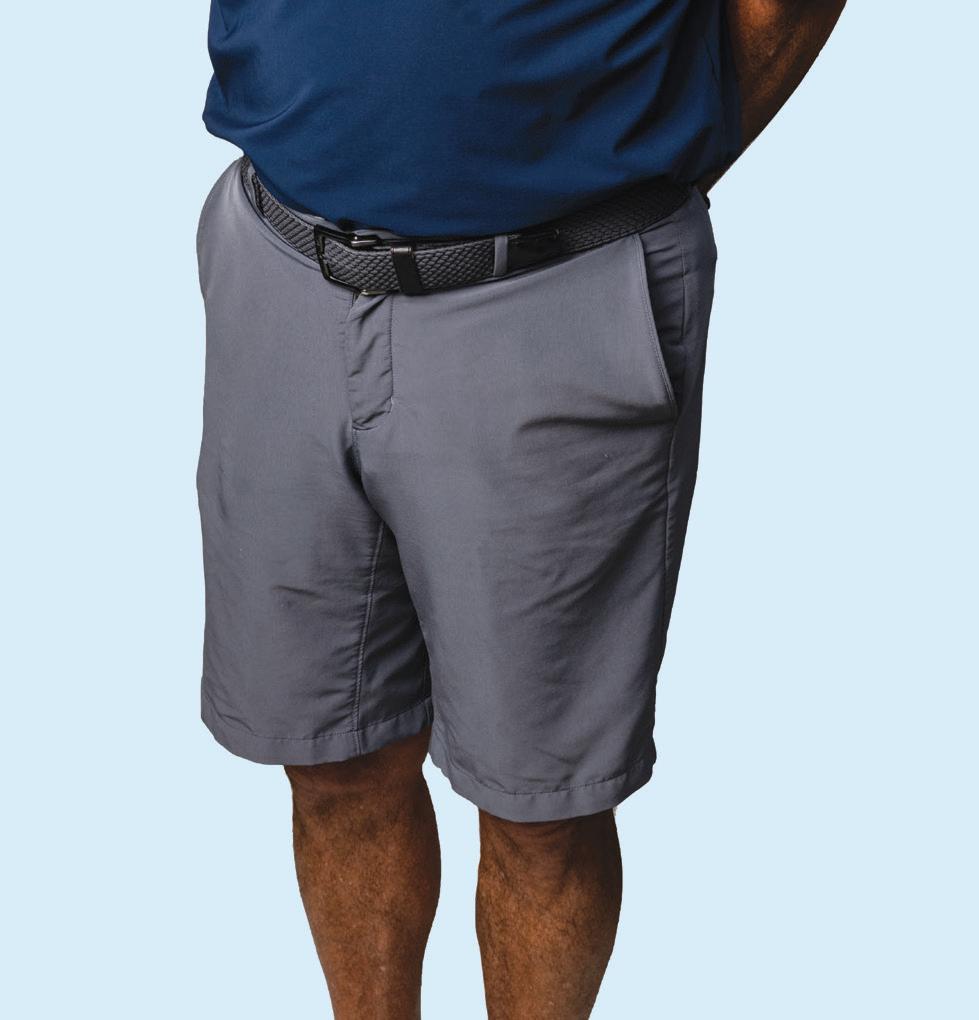
































ARIZONA’S ONLY LOCALLY OWNED SPORTSBOOK HAS FOOTBALL SEASON COVERED, WHEREVER YOU GO.










JOIN US AT OUR 3 SPORTSBOOKS, OR GET THE APP AND BET FROM ANYWHERE IN ARIZONA.























































ARIZONA’S ONLY LOCALLY OWNED SPORTSBOOK HAS FOOTBALL SEASON COVERED, WHEREVER YOU GO.










JOIN US AT OUR 3 SPORTSBOOKS, OR GET THE APP AND BET FROM ANYWHERE IN ARIZONA.

























Oro Valley, AZ – When it comes to chronic pain and/ or neuropathy, the most common doctor-prescribed treatment is drugs like Gabapentin, Lyrica, Cymbalta, and Neurontin. The problem with antidepressants or anti-seizure medications like these is that they offer purely symptomatic relief, as opposed to targeting and treating the root of the problem. Worse, these drugs often trigger an onset of uncomfortable, painful, and sometimes harmful side effects.
The only way to effectively treat chronic pain and/or peripheral neuropathy is by targeting the source, which is the result of nerve damage owing to inadequate blood flow to the nerves in the hands and feet. This often causes weakness, numbness, tingling, pain, and balance problems. A lack of nutrients causes the nerves to degenerate – an insidious and often painful process.
cannot survive, and thus, slowly die. This leads to those painful and frustrating consequences we were talking about earlier, like weakness, numbness, tingling, balance issues, and perhaps even a burning sensation.
The drugs your doctor might prescribe will temporarily conceal the problems, putting a “BandAid” over a situation that will only continue to deteriorate without further action.
Thankfully, Oro Valley is the birthplace of a brandnew facility that sheds new light on this pressing problem of peripheral neuropathy and chronic pain. The company is trailblazing the medical industry by replacing outdated drugs and symptomatic reprieves with an advanced machine that targets the root of the problem at hand.
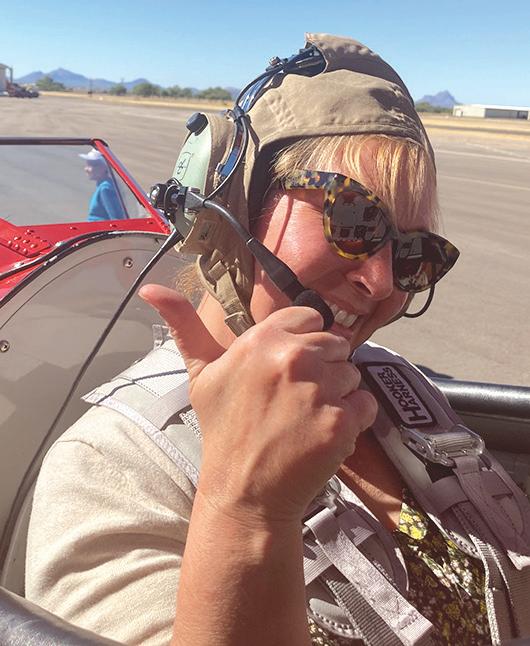
1. Finding the underlying cause
2. Determining the extent of the nerve damage (above 95% nerve loss is rarely treatable)
3. The amount of treatment required for the patient’s unique condition
Arrowhead Physical Medicine in Oro Valley AZ uses a state-of-the-art electric cell signaling systems worth $100,000.00. Th is ground-breaking treatment is engineered to achieve the following, accompanied by advanced diagnostics and a basic skin biopsy to accurately analyze results:
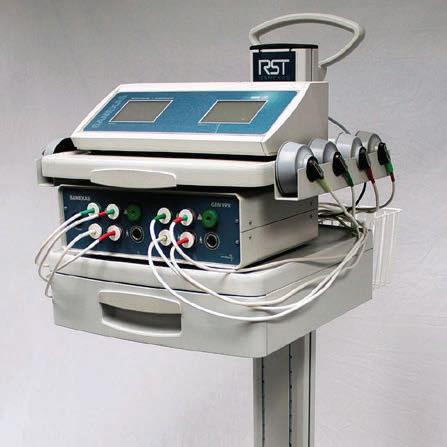
1. Increases blood flow

2. Stimulates and strengthens small fiber nerves
3. Improves brain-based pain
The treatment works by delivering energy to the affected area(s) at varying wavelengths, from low- to middle-frequency signals, while also using Amplitude Modulated (AM) and Frequency Modulated (FM) signaling
It’s completely painless!
The number of treatments required varies from patient to patient, and can only be determined following an in-depth neurological and vascular examination. As long as you have less than 95% nerve damage, there is hope!
Arrowhead Physical Medicine begins by analyzing the extent of the nerve damage – a complimentary service for comprises a detailed your friends and family.sensoryEach exam evaluation, extensive peripheral vascular testing, and comprehensive analysis of neuropathy findings.
Arrowhead Physical Medicine begins by analyzing the extent of the nerve damage –a complimentary service for comprises a detailed your friends and family. Each sensory exam evaluation, extensive peripheral vascular testing, and comprehensive analysis of neuropathy ndings.
Arrowhead Physical Medicine will be offering this free chronic pain and neuropathy severity evaluation will be available until December 31st 2022. Call (520) 934-0130 to make an appointment
Arrowhead Physical Medicine will be o ering this free chronic pain and neuropathy severity evaluation will be available until February 28, 2023. Call (520) 934-0130 to make an appointment
Due to our very busy office schedule, we are limiting this offer to the first 10 c allers Y OU DO NOT HAVE TO SUFFER ANOTHER MINUTE, CALL (520) 934-0130… NOW!!
We are extremely busy, so we are unavailable, please leave a voice message and we will get back to you as soon as possible.
As displayed in figure 1 above, the nerves are surrounded by diseased, withered blood vessels. A lack of sufficient nutrients means the nerves
Effective neuropathy treatment relies on the following three factors:
Arrowhead Physical Medicine 10425 N Oracle Rd., Suite 125 Oro Valley, AZ, 85737


Depending on your coverage, your peripheral neuropathy treatment could cost almost nothing – or be absolutely free.
520-934-0130
THE GREAT NEWS IS THAT THIS TREATMENT IS COVERED BY MEDICARE, MEDICAID, AND MOST INSURANCES!!
Tuesday
FEBRUARY 7
Thursday FEBRUARY 9
Tuesday FEBRUARY 14
Wednesday FEBRUARY 15
Friday FEBRUARY 17
Tuesday
FEBRUARY 28
GIVE IT YOUR BEST SHOT: RECOMMENDED VACCINES
3:00 p.m.
Melissa Levine, MD Arizona Community Physicians
EVERY MOVE YOU MAKE: IMPROVING YOUR HEART HEALTH
10:00 a.m.
Marija Zaruba, DPT, TMC Outpatient Therapy
IS A TRUST RIGHT FOR YOU?
2:00 p.m.
Shanelle Schmitz, JD, Law Office of David I. Karp
HEART SMART EATING FOR YOUR HEALTH
10:00 a.m.
Mary Mellady, MHA, RDN, TMC Wellness
PREVENTION TO SLOW CARDIOVASCULAR AGING

1:00 p.m.
Greg Koshkarian, MD, Pima Heart & Vascular
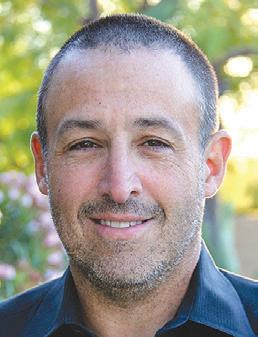
HELP! NAVIGATING AZ LONG TERM CARE (ALTCS) & VA AID & ATTENDANCE



2:00 p.m.
David Karp, PLLC, Law Office of David I. Karp
Please register in advance for both in-person or virtual classes at tmcaz.com or by calling 520.324.1960
For more information and full list of events, visit tmcaz.com/seniors
With Super Bowl LVII fast approaching, one can only marvel at the prices being commanded from the tourists coming to the Valley for the Big Game. I am currently staring at the booking page for a Motel Six located near 51st Avenue and McDowell Road in Maryvale.
The price for a 200-square-foot “premium room,” which features two double beds, a fridge, a microwave, and a violent crime rate over twice the national average?
A mere $864 a night.
Keep in mind, this is a hotel with 906 reviews that average two stars. This is not exactly Fodor’s material: “Holes in the walls and floor, green sludge on the floor. Deposit was more than the room. Check out took 45 minutes. Security was solid, though.”
I’m a glass-half-full fellow. Between the solid security and the free WiFi, I can’t recommend these luxe accommodations enough. My only regret is that the Dallas Cowboys got knocked out of the playoff s. I would’ve paid big money to see some cowpoke in a 10-gallon Stetson and a Roger Staubach jersey trying to choose between Filiberto’s up the street or the IHOP on the other side of I-10.
Then there’s trying to book a round of golf. If you read this space regularly, you know I’m addicted to that cursed game.
Right now, even modest public golf courses plan to gouge golfers for upward of $300 a round during Super Bowl week. Consider OrangeTree in Scottsdale, which in summer is almost worth every bit of its $50 bucks in greens fees. This week, rounds in prime time are going for about $150 for 18 holes.
Super Bowl week? If you want to play the Friday morning before the game, be prepared to part with $315 per person.
Factor in that it’ll be a five-hour round full of drunken bros sporting cigars the size of a 7-iron and I’ll pass. But look on
the bright side: These would-be Bryson DeChambeaus typically shoot about 120 not counting mulligans. At $2.62 a stroke, that makes OrangeTree a better buy than a gallon of unleaded.
According to a study by researchers at Arizona State University, SB57 should create about 100,000 visitors to Glendale and points beyond and about $600 million in economic impact.
A sizable portion of this haul will be created by locals renting out their homes. Browsing the available shortterm rentals on VRBO shows about 300 properties left unrented.
The most opulent of the bunch: A “tropical modern paradise” atop Camelback Mountain renting for about $16,000 a night — or 114 grand for the week. It’s a six-bedroom private gated villa close to Paradise Valley with a chipping green and a bocce court. It also includes “daily maid service” and “500 thread count luxury white linens.”
No word on whether security is solid. As a get-rich-quick scheme, I briefly considered going on vacation and renting out my place. Or as I planned to describe it on Airbnb: “Motel 5! LIke A Motel 6 Minus The Crime!”
If a room full of green sludge gets 860 bucks a night, I thought I could get $1,000 a night, easy. Heck, I might even get $1,200 a night if the out-of-towner wanted to borrow my “personal private security force,” which includes Violet, a pitbull mix, and Lucy and Ethel, who together comprise “25 pounds of canine terror.”
Seems like more trouble than it’s worth, though. I’m going to stay home, stay off the golf course, and watch the big game on TV. That means I’ll miss the Super Bowl Experience, and I’m perfectly OK with that.
I’ve been robbed before.
I don’t need to volunteer for a repeat.







































Hall of Fame catcher and noted clubhouse philosopher Yogi Berra offered a mathematically dubious calculation to describe the “mind games” within our national pastime. You might call it “Yogi’s Law.”
“Baseball is 90% mental. The other half is physical.”
Brock Purdy plays a different professional sport in a different era, but he probably would not deny the larger truth preceding Berra’s computation — especially in the wake of the Queen Creek native’s remarkable rookie season in the NFL.
Brock’s improbable rise from thirdteam reserve to San Francisco’s starting quarterback — with his successful string of seven straight victories — is the stuff of storybooks.
As this column is being written, Purdy and his 49er teammates are preparing to visit Philadelphia to play the Eagles for the NFC Championship.
Dizzying heights, for sure… especially for his first year in pro football. But instead of a storybook, Purdy relies on the Good Book, and the Bible has imbued him with wisdom beyond his 23 years.
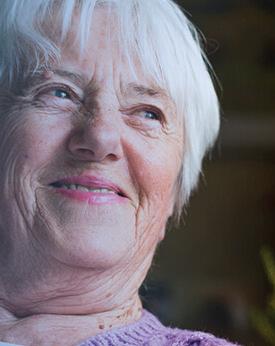
“Everything happens for a reason; it’s all a lesson from the Lord,” Brock has said.
A few hard knocks have supplemented Scripture and kept him humble.
Mononucleosis sidelined Purdy for the first three games of his junior season at Perry High and affected his standing among major college recruiters, who initially displayed minor interest. Then the big schools saw Brock’s big numbers in passing yardage for the Pumas and pounced with cat-like quickness — es-
pecially Alabama, which upped its offer from “preferred walk-on” to full scholarship.

Tuscaloosa ain’t Tinseltown, but the Crimson Tide’s head coach then appeared to take a page from the unnamed Hollywood casting director who reportedly said of Fred Astaire, “Can’t act, can’t sing, can dance a little.”

During Brock’s campus visit to Alabama, Nick Saban didn’t mince words, telling Purdy, “You’re below average in height. Your arm strength is whatever. Your accuracy is average.”
Whether it was candor meant to inspire Purdy or confusion with another recruit, Saban’s unvarnished assessment certainly proved motivational. It motivated Brock Purdy to pass on the perennial national power, take a close look at Texas A & M and finally choose Iowa State.
Purdy’s four years as a Cyclone were a whirlwind. Foreshadowing his NFL experience, he began his freshman season as a third-stringer, but soon became the starter, opening eight games and ending up with the sixth-best pass rating in the NCAA. His second season brought second-team All Big 12 Honors, and he was first team All-Conference his final two years.
April of last year brought another transition and an action some might consider an insult — or, as Yogi Berra might have called it, “Deja vu all over again.”




Purdy’s name was called at the NFL Draft but was the last name called and



that final pick came with a nickname that is less than complimentary.
When San Francisco selected him with the 262nd — and concluding — pick of the draft, Purdy earned the title “Mr. Irrelevant.”
What might seem insulting at first glance was actually initiated as an honor. The late Paul Selata, who starred as a receiver first at Southern Cal and later with the 49ers, thought the last player picked should receive an “accolade” similar to the top selection.
So Selata began “Irrelevant Week” in 1976, bringing the bottom selection to Newport Beach, California, for a trip to Disneyland, a golf tournament, a regatta, and a celebrity roast, where “Mr. Irrelevant” is awarded the “Lowsman Trophy” — the opposite of the Heisman — get it?
There is a higher purpose to the “exercise in irrelevancy” — raising funds for charities such as SPIN — Serving People In Need — so Brock and his family gladly made the trip.
Now Purdy and the Niners face this fundamental truth: They are one win away from the Super Bowl.
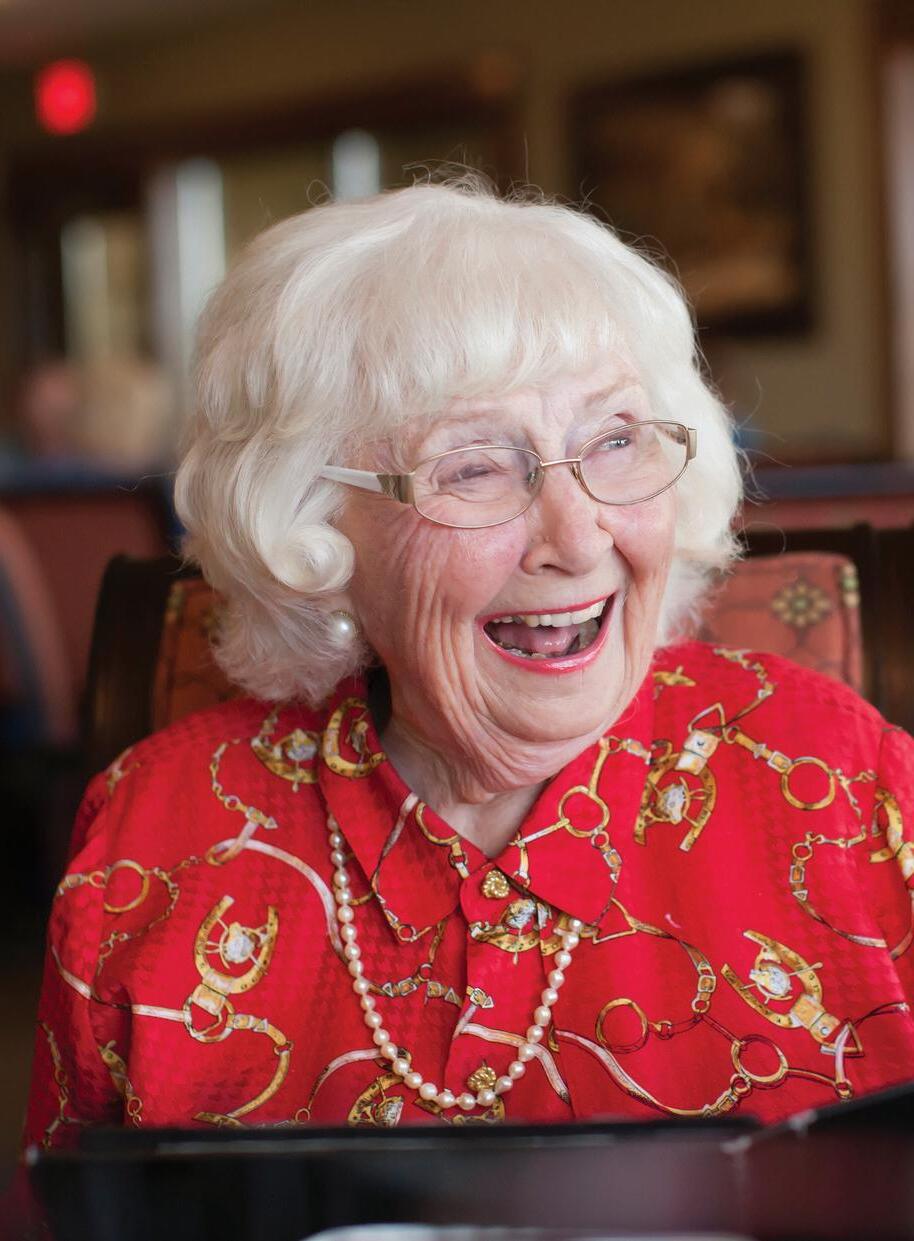
Berra would caution that “it’s not over ’til it’s over.”
But regardless of the outcome, for Brock Purdy, this is just the beginning.
On a cool morning, five veterans and a widow of a former solider gathered at Marana Regional Airport to keep an appointment with a restored, red, open cockpit Stearman biplane, the same aircraft used to train aviators before and during World War II.

Some observers might have been concerned about these passengers given that they were mostly in their late 80s and 90s. There was no need to fear, however; they were up to the task.
Up first: Scott Bauman, who had turned 92 the day before the flight. The U.S. Air Force veteran came ready to soar.
“I’ve never flown a biplane with an open cockpit before,” he says before his flight. “It’ll be, I think, a thrilling experience.”
The event was made possible by Dream Flights, a national nonprofit organization that seeks to honor veterans and seniors with a ride in the Boeing Stearman biplane. Locally, it was the Veterans
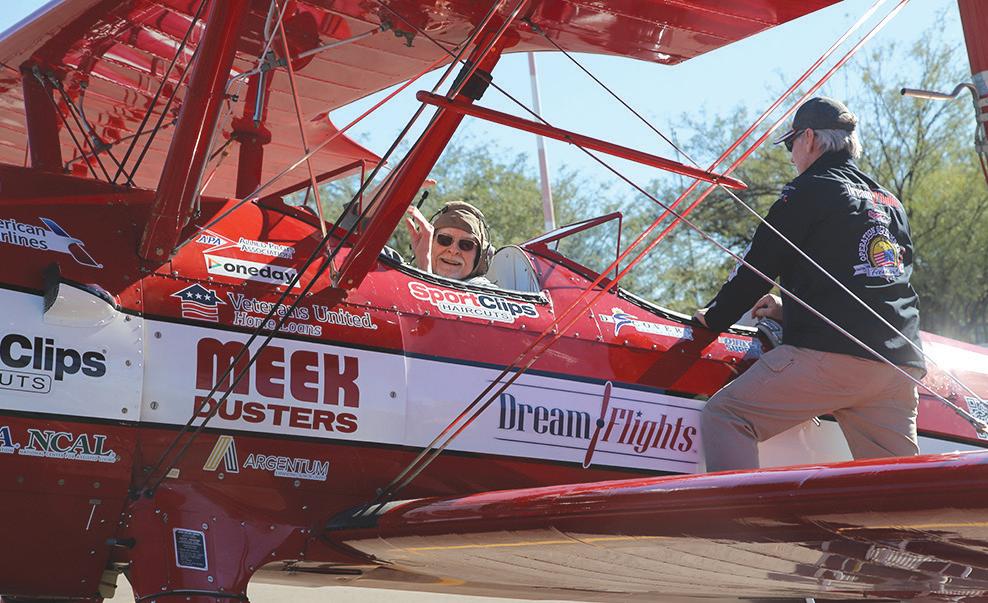
Committee, part of the Veterans Club at Splendido at Rancho Vistoso, and Sport Clips sponsored it. On this day, four of the passengers were Splendido residents and one was a staffer.
Like any flight, before the passenger could slip into the seat, there was a safety demonstration. Everyone gathered around pilot Carl Geisert to listen. A half-hour later, Bauman approached the plane, posed for photos, then climbed aboard. He donned an aviator hat complete with goggles and microphone and hung on. The plane taxied a bit and took off.
Passenger Elaine MacDonald is a widow of a Korean War U.S. Army veteran. She couldn’t wait to sign up for her ride.
“When I saw this listed and they opened it up to veterans’ wives, I says, ‘Oh, I want to do that,’” she says with a laugh. “It’s a wonderful thing that Dream Flights is doing for free.”
Kimberly Berberich, the director of residence services at Splendido, says this is the kind of activity she really enjoys planning.
“To see (Bauman) so excited and jump right up there and into the cockpit is just so rewarding,” she says. “Seeing Scott’s face coming out of it, I hope to be doing this for years to come.”
Berberich is a Desert Storm veteran of the U.S. Air Force. She was in Al Minhad, outside
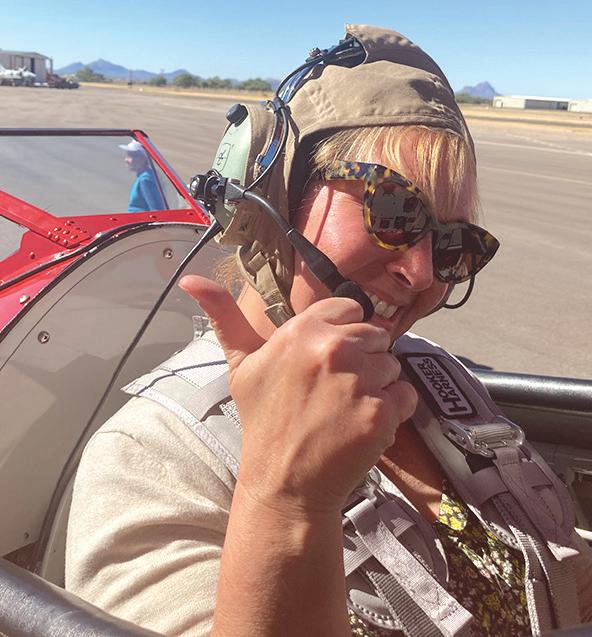
of Dubai, and at Davis-Monthan Air Force Base.
This is Dream Flights’ second year with Splendido. It took nine months of planning to make the flights a reality, and there weren’t as many people who wanted to ride as the committee expected.
“I think a lot of them maybe didn’t feel that they would be able to get into the cockpit,” Berberich says.
They should not have worried, though. There was ample help for those who needed it, beginning with a step ladder up onto the wing and instructions on where to put their feet and ending with several hands guiding the passengers into place.
Still, it’s hoped that when next year’s flight opportunities roll around, there will be more takers.
“I think every year is going to build,” Berberich says.
Other passengers of the day included Fred Roby, 93, U.S. Army; Wesley Osborn,
88, U.S. Army; and Gaston Melouche, 75, a veteran of the Canadian military, where he served as a paratrooper.
Bauman’s son, Kent, wasn’t nervous for his dad nor about the flight.
“He still drives and does his own taxes,” Kent says. “I think it’s just one more thing out of the bucket list. I think it’s great. He’s still active, and it will be something he’ll remember.”
The flight lasted less than half an hour, although the preparation seemed to take longer than the actual flight. Then, there were all the pictures that had to be taken. Finally, Bauman was ready to climb out. He was very happy.
“It was a very smooth flight,” he says. “Very enjoyable. There was heavy wind up there, but I dressed warmly and I didn’t feel too cold at all. They have all the controls up there (where he sat); they told me where to put my feet so I wouldn’t be operating the pedals, but a very smooth flight.”
Mark Goldstein is a risk reducer. With a bit of probing and a specialized computer program, he can predict if, within six months, someone will land in the hospital.


“We spend extra time going through the house, looking at everything like the medication situation (for example),” Goldstein says. “How is it dosed out? Do they understand? Do they have a way of getting prescription renewals? We’re able to take that information and put that into our program. We can actually spit out their risk of going into the hospital six months from now.”
Goldstein is a community liaison for Senior Helpers, an organization that specializes in caring for those with dementia, Alzheimer’s and Parkinson’s diseases.

The nationwide company assists clients with aging in their homes, but staff works with nursing homes as well.
It starts with a phone call from a family
member or even from the potential client who recognizes a need. The process continues with a free in-home visit, where Goldstein does a needs assessment.


“We have an assessment called a Life
Profile Assessment that really looks at multiple areas for an individual,” says Tehjan Prendiville, Senior Helper executive director.
Some of the needs found during the assessment can be easily managed.

“Are they eating well? We can do meals,” Prendiville says. “They’re not grocery shopping correctly. We can do that for them.”
Then there’s the more personal support.
“It’s not safe for them to get in and out of the shower, so what can we do to rectify that? Then, we can make recommendations.”
“That’s what we do,” Goldstein adds. “We have the ability to reduce risk through our caregivers.”
“(The Life Profile Assessment) is an important tool for people,” Prendiville says. “It’s really pretty predictable what puts people in the hospital. It’s going to be a fall; it’s going to be a medication. Medication errors are probably No. 1.”
Cameras, accessible to family members, are other tools used to keep clients safe. Electronic devices worn on the wrist, too, can detect falls or give reminders in family members’ voices to take medications.
Senior Helpers will just socialize, too, or help a client get out of bed and dressed. It just depends on the need, which often changes with time.
Not everyone is excited to receive this type of care. Unfortunately, it is sometimes thrust upon a person through an accident or other medical condition.
four hours that must be paid out of pocket, as Medicare will not cover it. The cost is $31.25 an hour, which is a flat rate and doesn’t vary according to the time of day or services rendered.
Veterans may qualify for assistance with these expenses, but it is by reimbursement.
“The VA, if you’re lucky enough to be a veteran, will pay for it,” Prendiville says. “Not only will they pay for what we do, when we make recommendations like, OK, the shower’s not safe, they give what’s called a grant in whatever the dollar amount is to redo the bathroom to make it accessible. They will put in ramps to make it accessible. The VA will pay for all of that. Nobody else will but the VA will.”
“It will also provide respite for spouses,” Goldstein added.

Some of the Medicare Advantage plans are starting to address payment for these services. With Senior Helpers, it is not yet available, according to Pendiville.
A Hughes
Account (CD) can securely help you reach your financial goals faster.

First, select the term and deposit amount that works for you. Then watch your earnings grow. Best of all, your principal balance is protected and insured!
We take you further.
“Generally, what happens with somebody who is resistant and won’t let somebody come in is that it takes something to happen,” Pendiville says. “Generally, like a fall, and then they have to have help.”
Senior Helpers is book at a minimum of
520-216-4481
Ruth Sanders is a former member of the sandwich generation.
“I was a professional, had my children at home,” she says. “I was very active in my own life, my husband’s life, but also doing things for my mom. It was like being a sandwich. My life, I’m in the middle, and her life.”
A retired nurse, Sanders learned what it meant to care for an aging parent before her mother died. She parlayed those lessons into “My Parent, My Child, Love Conquers All.” The book is available on Amazon and Saturday, March 4, and Sunday, March 5, at the AuthorHouse Gallery at the Tucson Festival of Books.
Taking care of her mother was not what Sanders expected.
“What I didn’t know at that time is that my retirement would revolve around doing things for my mom,” she says. “I thought being a nurse would have prepared me better for being what I term ‘lay caregiver.’ It really didn’t.”
It turns out she wasn’t alone. According to Sanders, there are more than 16 million Americans who are caring for loved ones.
“They are not paid to do it,” she says. “They are having to do it.”
In addition, Sanders says, about 14 million Americans have some form of dementia.
“It’s a silent epidemic, really,” Sanders adds.

Sanders says families need to develop a blueprint while everyone is able to make their own decisions.
“Without a plan, someone else might make the decision for you and it might not be what you want,” she says. “Eighteen and older, you need a plan because life is not promised.
“For instance, if you are an only child, you need to have a conversation with the parents or a parent while they are up, about and independent. ‘Mom, what do you want your life to look like if you can no longer care for yourself? Do you want to be in an assisted living facility? Do you want to be in an efficiency apartment? How would you like for that to look?’ You’re just having a conversation.”
If there are siblings, have a roundtable discussion, which includes the entire
family, but do not expect consensus.
Questions should be asked about burials, life support, wills, living will/advance directive and feeding tubes.


“You’re having this conversation not when they are ill, but when he or she is up and about and independent,” Sanders says. Then “You have a blueprint; you have a plan.”
Caring for a parent is stressful. Sanders says it’s important to be respectful. Sometimes you need the patience of a saint and a coping strategy. Unfortunately, there is no one size fits all; each person and moment are different.
“It depends on that particular case, on what is going on at that particular moment with your life and the person you are caring for,” Sanders says.
She has a strategy for stubbornness, too.
“You might sometimes have to bring in a mediator, a third party,” she says. “Many times, a mother might not respect a daughter telling her what to do. If you bring in a mediator, a friend, and you tell the friend if you would ask mom or dad to do this, guess what? A revelation. All of a sudden, a change. If mom or dad thinks that you’re trying to force them into doing something, it’s not going to work.”
http://bitly.ws/zta5





Joe Bourne has performed music around the world, including a German cruise ship. These days, he lives in Oro Valley and brings his variety of tunes to listeners around Arizona.
Bourne and pianist Daniel “Sly” Slipetsky will perform at the Westward Look Wyndham Grand Resort and Spa on Friday, February 3, as part of Southern Arizona Arts and Cultural Alliance’s Live Music Concerts.
Bourne covers songs from artists ranging from B.B. King, Eric Clapton, Perry Como, Nat King Cole, Frank Sinatra, John Denver, the Temptations, Marvin Gaye, Michael Jackson, Chris Stapleton, Stevie Wonder, Al Green, Josh Turner, Ray Charles and Smokey Robinson.
During his upcoming show at the Westward Look, he plans to offer jazz, soul, blues, country and R&B tunes.
“There will be a broad range of repertoire on that evening, something for everyone,” Bourne says. “You might hear ‘My Girl’ one moment and ‘Country Roads’ the next moment. I mix it up in a way that works — and people like that.”
Bourne offers his music in different configurations and genres, depending on the setting. This includes a 10-piece Motown group, a Nat King Cole tribute with a trio and an 18-piece big band.
His itinerary includes the Nat King Cole tribute at the Hotel Congress’ Century Room on Wednesday, March 1, and a solo performance on Sunday, March 5, at the Gaslight Music Hall.

The cost of everything is going up, use a Reverse Mortgage to supplement your tax-free cash flow and Retire Better! There is a reason we have been helping people change their lives with Reverse Mortgages for over 30 years.
WHY IS SUN AMERICAN MORTGAGE THE RIGHT CHOICE?
• Experience. Sun American wrote the first Reverse Mortgage in Arizona over 30 years ago.


• In-house processing, underwriting, and funding – which means a smooth, consistent and stress-free process for you.
• CPA available to help structure the best way to involve your home equity in your retirement plan, analyzing what is best for your financial future.
• Concentrates on doing what is best for you.
• A+ BBB rated company.


• We make in-home visits statewide; Virtual meetings on-line also available.
WHY A REVERSE MORTGAGE?
• No loan repayment is required as long as you live in your home. Property taxes, insurance and HOA dues must be maintained.

• You retain full ownership and title of your home.
• Both HUD and Proprietary Reverse Mortgage options available everse

480.467.1000 4140 E. Baseline Rd. #206 • Mesa, AZ 85206 800.469.7383 or SunAmerican.com
Bourne’s most recent release is 2017’s “Upbeat and Sweet,” for which he rearranged rock music from the ’60s through ’80s into jazz tunes. It features Grammy-winning drummer Lewis Nash and was produced, arranged and recorded by bassist Mike Levy.
“I try to bring my own style to it,” Bourne says.
“People want to hear the song, but I try to bring a little of Joe Bourne into the presentation of the song. I try not to copy the way that Frank Sinatra sang the song. You can’t … because of the sound of my voice. It is my own. As far as Nat King Cole goes, without trying to copy him, I have a natural sound in my voice that people will say, ‘You sound like Nat King Cole.’”
Throughout his career, he has witnessed the ebb and flow of the music industry.
“A song like ‘My Way,’ I wore that out back when it came out,” Bourne says.
“After a while, you leave it alone. People don’t want to hear it anymore. When I go out now, that’s the most-requested song. I find myself doing songs that I started doing when I started in ’68. Songs that I did back then are being requested today. Songs that I put away, I’m pulling back out again.”
Bourne says these songs are nostalgic for listeners and himself.
“People enjoy hearing them, and it takes them back,” Bourne says.
Although he tends to do covers, Bourne does perform original tunes that were successful overseas.
“I might slip it in here, even though people don’t know it, but I know they will react strongly to it,” Bourne says.

Music has been a part of the singer’s life since he was a child.
Originally from Cambridge, Massachu-
setts, Bourne was exposed to classical and religious music when he was a child. He learned to play piano, clarinet and acoustic and steel guitars, but he was really drawn to singing. He joined a barbershop quartet in grammar school and sang with a doo-wop group in high school.
He was also part of youth choirs and street corner singing groups during his adolescence. With these groups, he developed a love for and knowledge of American standards, jazz and R&B music of his day.
He has been influenced by artists such as Sinatra, Lou Rawls, Sam Cooke and Cole.

He released his debut LP, “Let It Be Me,” in 1968. His music has taken him in different directions, including jingles for Delta Air Lines and Coca-Cola.
He moved to Europe in 1975, where he performed for the American and Dutch militaries.
In Europe, he was a supporting act for the Pointer Sisters, Natalie Cole, Nina Simone, the Stylistics and Dionne Warwick. In Germany, he did a Christmas TV special with Ray Charles.
Before moving to Oro Valley in 2000, he lived in the Netherlands for 25 years.






















Roger Langdon sees The Heart of Rock and Roll as much more than a Huey Lewis & the News tribute act. It’s a true appreciation for a band who rarely performs due to Lewis’ diagnosis of Ménière disease, a disorder caused by buildup of fluid in the chambers in the inner ear. It causes symptoms such as vertigo, nausea, vomiting, loss of hearing, ringing in the ears, headache, loss of balance, and sweating.



“It’s a love letter to Huey Lewis & the News, their fans and that era of music,” says Langdon, a Temecula, California, resident who’s a dead ringer for Lewis.
“We take what we do very seriously, but we have a lot of fun with it. It’s a very, very fun, high-energy show.”
Huey Lewis & the News found success in the 1980s with songs like “Heart and Soul,” “The Heart of Rock & Roll,” “Stuck with You,” “Do You Believe in Love,” “I Want a New Drug” “If This is It,” “Hip to Be Square” and “Doing It All for My Baby.”
The group’s latest album, “Weather,” was released two years ago.


In The Heart of Rock and Roll, Langdon is joined by six musicians, who have toured with legends like Carrie Underwood, Kenny Loggins, Jim Messina and Olivia Newton-John. Saxophonist Steve
Nieves played with Loggins and Messina.
The band also includes guitarist/co-founder Tony Langdon, drummer Jay Smith, keyboardist George Logemann, bassist Russ Reshaw and guitarist Nick Costa.
This year, The Heart of Rock and Roll celebrates 10 years of telling the News’ story. They’ll play throughout Arizona this February.
“The reason we started it 10 years ago was because I was in another variety/cover band that played a lot of Southern California venues,” says Langdon, who is friends with Sean Hopper, the saxophonist for Huey Lewis & the News.
“When we did our shows, I would try to imitate the singer. I tried to change my voice to imitate certain people. When we were doing James Brown, I’d try to sound like James Brown. When we were doing Michael McDonald, I’d try
to sound like Michael McDonald. Huey Lewis is in my natural range.” He admits he didn’t particularly look like him until he lost weight, changed his
WHEN: 7 p.m. Thursday, February 23

WHERE: The Venue at Farnsworth Hall, 6159 E. University Drive, Mesa
COST: Tickets start at $20 INFO: hueytribute.com
WHEN: 7 p.m. Saturday, February 25
WHERE: DesertView Performing Arts Center, 39900 S. Clubhouse Drive, Tucson
COST: Tickets start at $30 INFO: 520-818-1000, hueytribute.com
hairstyle, and started wearing sunglasses onstage.
“That’s why we chose it,” Langdon says. “I look and sound like him. Nobody really around the country is doing a Huey Lewis tribute. We cornered the market.”

If venues permit it, The Heart of Rock and Roll features videos from the 1980s, creating a high-energy tribute.
“You will feel like you saw them again,” Langdon says. “We hear all the time, ‘You guys are just like them. You guys are nailing it.’ That’s the best compliment we can get. It’s a very professional show. We’re not cheesy.”
The idea of Go Figure is to arrive at the figures given at the bottom and right-hand columns of the diagram by following the arithmetic signs in the order they are given (that is, from left to right and top to bottom). Use only the numbers below the diagram to complete its blank squares and use each of the nine numbers only once.



Place a number in the empty boxes in such a way that each row across, each column down and each small 9-box square contains all of the numbers from one to nine.
DIFFICULTY THIS WEEK H
H Moderate HH Challenging HHH HOO BOY!
DIFFICULTY THIS WEEK H
H Moderate HH Challenging HHH HOO BOY!
Each numbered row contains two clues and two answers. The two answers differ from each other by only one letter, which has already been inserted. For example, if you exchange the A from MASTER for an I, you get MISTER. Do not change the order of the letters.

Unscramble the letters within each rectangle to form four ordinary words. Then rearrange the boxed letters to form the mystery word, which will complete the gag!

WEDNESDAY, FEBRUARY 1
American Indian Arts Exposition, various times through February 12, house at 2830 S. Thrasher Avenue, Tucson, call for charge, 520-420-4332, usaindianinfo. com
THURSDAY, FEBRUARY 2
Odyssey Storytelling: “Devour,” the first Thursday every month, The Screening Room, 127 E. Congress Street, $15, odysseystorytelling.com, see the website for each month’s prompts and sign up to tell a story
FRIDAY FEBRUARY 3
Table Games, 9 a.m. to 12:30 p.m. Fridays, Marana Community Room, 5100 W. Ina Road, Marana, free, maranaaz.gov/ teamsenior#
“Music on Main Street” Concert, 5 to 9 p.m., first and third Friday, thereafter, Trail Dust Town, 6541 E. Tanque Verde Road, free, traildusttown.com
SATURDAY, FEBRUARY 4
Paul Reiser: “The Big Font Comedy Tour Tucson,” 8 p.m., Rialto Theater, 318 E. Congress Street, tickets start at $39.50, rialtotheatre.com
SAACA Fine Art Festival, 10 a.m. to 5 p.m., repeats 11 a.m. to 4 p.m. Sunday,
February 5, La Encantada, 2905 E. Skyline Drive, free, saaca.org/laefineart.html
SUNDAY, FEBRUARY 5
Amerind in Tucson: “Dances of a Painted Warrior Featuring the Duncan Family,” 2 p.m., Fox Tucson Theatre, 17 W. Congress Street, $35, foxtucson.com/ event/painted-warrior
Arizona Blues and Heritage Foundation: “Black Cat Bones” Outdoor Jazz Cookout, 4 p.m. Hotel Congress Plaza, 311 E. Congress Street, Tucson, $15, dice.fm
MOCA Senior Pride Tour, 2 to 3:30 p.m., Museum of Contemporary Art (MOCA), 265 S. Church Avenue, free, soazseniorpride.org
MONDAY, FEBRUARY 6
Chess Club, 3 to 5 p.m. Mondays, Oro Valley Public Library, 1305 W. Naranja Drive, Oro Valley, library.pima.gov/locations/ ORO, free
TUESDAY, FEBRUARY 7
Raptor Free Flight, 10 a.m. daily except Wednesday through April 9, Arizona Sonora Desert Museum, 2021 N. Kinney Road, desertmuseum.org, $27.95 over age 65, $9.95 with valid EBT card and ID, admission includes all Desert Museum exhibits. arrive 20 minutes early
WEDNESDAY, FEBRUARY 8
Voyager Market Daze, 9 a.m., the second Wednesday every month, Voyager RV Resort, 8701 S. Kolb Road, free, voyagerrv.com
Marana Senior Center Day Trip, 9 a.m. to 3 p.m., Tohono Chul Park, 7366 N. Paseo Del Norte, visit website for charge, maranaaz.gov/teamsenior, advance registration required online or at Marana Senior Center, 13250 Lon Adams Road, Marana
Senior Pride Game Day, 1 to 3 p.m., the second Wednesday every month, Habitat for Humanity, 3501 N. Mountain Avenue, free, soazseniorpride.org
THURSDAY, FEBRUARY 9
Arts and Crafts, 11 a.m. Thursdays, Armory Park Senior Center, 220 S. Fifth Avenue, $1.50 day pass or free with $25 annual senior activity card tucsonaz.gov/ parks/ArmoryCenter
Victorian Valentine Workshop, 6 p.m., Lavender Manor, 347 E. Fourth Street, $45 includes materials, beverage and treat, life-under-the-oakslavender-farm.square.site/product/ victorianvalentineworkshop/337
FRIDAY FEBRUARY 10
Tucson Baroque Music Festival, times vary through February 12, Grace St. Paul’s Episcopal Church, 2331 E. Adams Street, $72.10 festival pass, $30.90 individual tickets, azearlymusic.org/festival
Southern Arizona Genealogy Society (SAGS) Workshop and Seminar, 9 a.m. to noon, and 9 a.m. to 3:30 p.m. February 11, La Posada Recreation Center, 685 S. La Posada Circle, Suite 37, Green Valley, $50 Friday and $55 Saturday for nonmembers, azsags.org
SATURDAY, FEBRUARY 11
“Broadway’s Next Hit Musical,” 7:30 p.m., Fox Tucson Theatre, 17 W. Congress Street, tickets start at $35, foxtucson.com
Cruise, BBQ and Blues, 10 a.m. to 3 p.m., Oro Valley Marketplace, 12155 N. Oracle Road, $5, saaca.org/classiccarshow.html
SUNDAY, FEBRUARY 12
Last Day, Tucson Gem and Mineral Show, 10 a.m. to noon, Tucson Convention Center, 260 S. Church Avenue, $12, tucsonconventioncenter.com
Shen Yun, 1 p.m., Linda Ronstadt Music Hall, 260 S. Church Avenue, tucsonmusichall.org, tickets start at $90
MONDAY, FEBRUARY 13
Music Jam with the Alzheimer’s Association, 11 a.m., TMC for Seniors, Tucson Medical Center, Palo Verde Campus, 2695 N. Craycroft Road, tmcaz.com
TUESDAY, FEBRUARY 14
Valentine Ballroom Dancing, 2 to 4 p.m., Udall Senior Center, 7200 E. Tanque Verde Road, $4, tucsonaz.gov/parks/udall
Arizona Statehood Day! On this day in 1912, “The Grand Canyon State” was born. Celebrate wherever you are.
WEDNESDAY, FEBRUARY 15
35th Annual Renaissance Faire and Artisan Marketplace, 10 a.m. to 6 p.m. daily through April 2, 12601 E. U.S. Highway 60, Gold Canyon, tickets start at $33 per day, arizona.renfestinfo.com
Calendar...continues on page 15

continued from page 14
THURSDAY, FEBRUARY 16
Walking the Wall of the Original Presidio, 10 a.m. to noon, Blenman Inn, 204 S. Scott Avenue, $25, tucsonpresidio. com/walking-tours, pre-registration is required.
Ben’s Bells Bingo, 5:30 to 7:30 p.m., Harbottle Brewing Company, 3820 S. Palo Verde Road, Suite 102, bensbells.org
FRIDAY FEBRUARY 17
Ballet Tucson: Winter Concert, various times, through February 19, TCC Leo Rich Theatre, 260 S. Church Street, tickets start at $30, ballettucson.org
SATURDAY, FEBRUARY 18
Mariachi Pueblo Nuevo’s “Amor y Amistad, Serenata del Amor,” 8 p.m., Rialto Theatre, 318 E. Congress Street, tickets start at $32, rialtotheatre.com
Tucson Roadrunners vs. Henderson Silver Knights, 7 p.m., repeats 4 p.m. February 19, Tucson Arena, 260 S. Church Avenue, tickets start at $15, tucsonroadrunners.com
SUNDAY, FEBRUARY 19
La Fiesta de los Vaqueros (rodeo week), various events and times through February 26, Tucson Rodeo Grounds, 4823 S. Sixth Avenue, tickets start at $18, tucsonrodeo.com
“The Forgotten Botanist, Sarah Plummer Lemmon’s Life of Science and Art”: Meet Author Wynne Brown, 3 p.m., Oro Valley Country Club, 300 W. Greenock, Oro Valley, $75 includes buffet, $75, $85 after Sunday, February 5, ovhistory.org
MONDAY, FEBRUARY 20
Scrapbooking, 1 to 3:45 p.m. Monday, February 20, Udall Senior Center, 7200 E. Tanque Verde Road, $1.50 or free with annual pass, tucsonaz.gov/parks/udall


TUESDAY, FEBRUARY 21

Black Jacket Symphony Presents
Fleetwood Mac “Rumours,” 7 p.m., Rialto Theatre, 318 E. Congress Street, tickets start at $20, rialtotheatre.com


WEDNESDAY, FEBRUARY 22
Memory Café at the Katie, 10 to 11 a.m. PCOA Katie Dusenberry Healthy Aging Center, 600 S. Country Club Road, free, pcoa.org

Fort Lowell Walking Tour with Ken Scoville, 1 to 3 p.m., Fort Lowell Park, 2900 N. Craycroft Road, $25, tucsonpresidio.com
THURSDAY, FEBRUARY 23
Fitness Dance Classes, 9:30 a.m. Thursdays, Armory Park Senior Center, 220 S. Fifth Avenue, $1.50 or free with pass, tucsonaz.gov/parks/ArmoryCenter
FRIDAY FEBRUARY 24
La Encantada Gem Show Final Weekend, 10 a.m. to 6 p.m., repeats through February 26, La Encantada Shopping Center, free, visittucson.org
Southwest American Indian Collector’s Expo, various times through February 26, house at 2830 S. Thrasher Avenue, Tucson, call for charge, 520-420-4332, usaindianinfo.com
SATURDAY, FEBRUARY 25


The Linda McCartney Retrospective Opening, 10 a.m. to 4:30 p.m., UA Center for Creative Photography Galleries, 1030 N. Olive Road, ccp.arizona.edu, the exhibition continues through August 5
SUNDAY, FEBRUARY 26
“Latin Fire”: Tucson Symphony, 2 p.m., Linda Ronstadt Music Hall, 260 S. Church Avenue, tickets start at $18, tucsonsymphony.org
MONDAY, FEBRUARY 27
Mr. Boogie Woogie: “Boogie Woogie Showdown,” 6 p.m., The Gaslight Theatre, 7010 E Broadway Boulevard, $27, thegaslighttheatre.com/concerts
TUESDAY, FEBRUARY 28
Tinsley Ellis, 8 p.m., 191 Toole, 191 E. Toole Avenue, tickets start at $24, ticketmaster.com
Bourne says making CDs for ballroom and Latin dancing while living in the Netherlands helped him develop a broad repertoire.

“I would do that in themes,” Bourne says.

“I would make a theme of Burt Bacharach music. On that CD, it would have the 10 dances, cha-cha, rumba, samba, tap, the tango, slow waltz, jazz and so forth. And then, I would do a Stevie Wonder theme. … On one of the records, I ended up doing something where ‘Edelweiss’ came up.”
These days, Bourne performs at music festivals, galas, corporate events, resort and country club events, church gatherings, ballroom dance nights, home concerts and parties, charity benefits, Christmas shows and air museum events.


He has served as the vice president for the Tucson Jazz Society board and been on the entertainment committee for the Greater Oro Valley Arts Council.





Bourne also gives back through the Oro Valley Optimist Club, an organization that supports youth groups in the community.
In addition to music, Bourne is also a visual artist. He took his first painting class while working on a German cruise ship in the mid-’90s.
He has dabbled in watercolors, acrylics, mixed media, metalwork and sculpture. These days, he is focusing more on encaustics, which involves working with beeswax.

Joe Bourne and Daniel “Sly” Slipetsky
WHEN: 6 to 8 p.m. Friday, Feb. 3

WHERE: Westward Look Wyndham
Grand Resort and Spa, 245 N. Ina Road, Tucson
COST: Free admission with table reservation; limited outdoor seating available
INFO: 520-297-1151 ex. 474, opentable. com, joebourne.com
His paintings are featured in galleries and gift shops in Phoenix and Tucson.




Along with paintings, he makes coasters, cutting boards, night lights, silk scarves, throw pillows and greeting cards featuring his artwork.
Sometimes, he incorporates stones and copper from the Tucson Gem, Mineral and Fossil Showcase. His friends and family also give him items to use in his art.
“I have a drawer full of stuff that I go to when I’m working on a piece, to see if





Joe Bourne and Trio: Tribute to Nat King Cole
WHEN: 7 p.m. and 9 p.m. Wednesday, March 1
WHERE: Century Room at Hotel Congress, 311 E. Congress Street, Tucson
COST: $15
INFO: 520-622-8848, hotelcongress. com, joebourne.com

something fits with that artwork,” Bourne says.
For his artwork, Bourne draws inspiration from his travels as a musician and from his surroundings.


“A lot of it is the Southwest right now. I do a lot of botanicals and try to create 3D versions of them with the wax. I do yuccas, ocotillos, century plants, various cacti that are very colorful and very textured,” Bourne says.
Joe Bourne: Solo Music of Johnny Mathis and Other Greats

WHEN: 6 p.m. Sunday, March 5
WHERE: Gaslight Music Hall, 13005 N. Oracle Road, Suite 165 Tucson
COST: $27 for adults, $15 for children 2 to 12 and $25 for seniors, students and military

INFO: 520-529-1000, gaslightmusichall.com, joebourne.com

 BY CHUCK GRAHAM
BY CHUCK GRAHAM
From my limestone perch, doing my best to meld into a lichen-covered cathedral, I watched 18 Dall sheep gradually grazing across layers of permafrost, peat moss and hillocks, nimbly traversing above a swift-moving Kongakut River 300 feet below. This was the Arctic National Wildlife Refuge (ANWR), and the tundra biome I viewed from about 100 feet away was teeming with Alaskan wildlife.
Narrow channels called runnels braid and flow beneath the Mordor-like North Slope of the Brooks Range, rushing northward toward the Coastal Plain, gritty barrier islands, Beaufort Sea and the Arctic Ocean. In all, the ANWR encompasses 19.3 million acres, one of the most wild, untouched habitats left on the planet. There are no roads, no maintained trails or helipads, and the water is so sweet and clean, filtering it is always an afterthought.
The only access into the ANWR is by either backpacking or flying in by bush plane and then rafting rivers like the Canning and the Kongakut. The impressive Brooks Range towers over 9,000 feet above with countless tributaries like the Pagilak and Paulaluk feeding major rivers that eventually converge with the Arctic Ocean.
Since the area became a National Wildlife Refuge in 1960, it has grown to be the largest refuge in North America. Even so, this vast area has been in the crosshairs for oil drilling. The 1.5 million acres that make up the Coastal Plain, in particular, are estimated to contain up to 11 billion barrels of oil deep beneath the permafrost. Politicians on the left and right have drawn lines in the tundra, and thus the plain was not protected.
However, this region of Northeast Alaska belongs to Alaskan Natives — the Iñupiat in the north and the Gwich’in in the southeast. They still subsist on their lands in the Arctic, relying on the 150,000plus Porcupine caribou herd that migrates in from Northwest Canada before reaching the Coastal Plain and their calving grounds. This massive caribou herd performs the longest migration of any terrestrial mammal on the planet.
The ANWR supports 43 mammal species, such as musk ox, grizzly bear, Arctic and red fox, Dall sheep, gray wolf and wolverine. During the Arctic’s brutally frigid winters, the Coastal
Plain is an important denning habitat for polar bears. At least 250 bird species have been documented in the refuge. Bald and golden eagles rule the skies. Waterfowl like harlequin and long-tailed ducks, gadwall and mergansers effortlessly swim the rushing rivers. In the spring and summer, thousands of shorebirds rely on the Coastal Plain for nesting habitat, such as Dunlin, red-necked-phalaropes and semipalmated plovers, to name just a few.
If oil drilling was ever to be allowed in the ANWR, it would disrupt its natural wonders, thus setting a precedent for all remaining wild places throughout the west.
Under the Trump administration, a provision in the 2017 federal tax bill made oil and gas exploration in ANWR the law. Leases went up for bid on January 6, 2020. Those bids fell far short of their financial mark of $900 million. About half the region received no offers at all, and not one major oil company submitted a bid. Only two smaller companies — Regenerate Alaska, a subsidiary of Australia-based 88 Energy, and Knik Arm Services, a small Alaska company owned by Mark Graber — each secured a lease, totaling $14 million. Many Alaskan politicians argue drilling would be good for jobs, the economy and state revenue.
However, on his very first day in office, President-elect Joe Biden put a temporary halt to oil and gas drilling in the roadless expanse of the refuge. Regenerate Alaska and Knik Arm Services have rolled back their efforts to move forward with oil exploration. The costs of building roads, helipads and other infrastructure
on the Coastal Plain has apparently far outweighed the means. For now, the Arctic National Wildlife Refuge is safe.

With only about 50 yards of spongy tundra and permafrost separating us, a wary female grizzly bear with a single cub in tow had a decision to make.

She had strategically maneuvered her way downwind of me. Just east of the Kongakut River, with the Coastal Plain 10 miles north of me, I could see her wet snout glistening in the morning sun as she sniffed the crisp Arctic air in my direction.
When I realized what she was up to, I dropped my camera pack, pulled out my bear spray, threw my pack back on, and braced myself for what might transpire. At that point, the ball was in mama bear’s court.
I wasn’t hoping for an encounter like this in Northeast Alaska. However, by rafting the Kongakut and hiking in North America’s largest wildlife refuge, I had immersed myself in this Arctic biome, and crossing paths with its wildlife was inevitable.
Seeking the wild in the wilderness has always been a priority for me. When friend and guide Carl Donohue from Expeditions Alaska messaged me about an opening on his rafting trip on the Kongakut, I didn’t hesitate.
Late June meant Summer Solstices hovered over the Arctic Circle, involving long sunny days that gratefully bedeviled
 BY CHRISTOPHER ELLIOTT
BY CHRISTOPHER ELLIOTT
Mark Graham is planning a trip to Sicily and France with his wife this summer. He’s still working out some of the details, but one thing he is sure of: getting travel insurance. Graham can’t imagine traveling without it.

“We feel better knowing we have the safety of insurance,” says Graham, a retired telecommunications worker.
And who can blame him? The pandemic made travel insurance a musthave item for many travelers, including people like Graham, who fit the “must be insured” profile (retired, overseas travel, cruising). Others who are planning their 2023 trips may still be on the fence. I can help you decide.

It’s going to be another interesting year for travel, experts say.
“Between flight disruptions, weather issues and unexpected medical emergencies, travel is unpredictable and will continue to be so in 2023,” says Carol
Mueller, a vice president at Berkshire Hathaway Travel Protection.
It’s natural for people to think about travel insurance. But what should they do? Graham’s concerns are common. For example, what if there’s another COVID-19 outbreak or the war in Ukraine affects his cruise? He’s also worried about a possible trip disruption or medical emergency. Those are issues that a standard travel insurance policy can address. But there are so many choices.
“Travelers are more interested in purchasing travel insurance than ever,” says Karisa Cernera, a director at Redpoint Travel Protection, a travel insurance company. “But choosing a travel protection plan can be overwhelming.”
What kind of insurance is available for your 2023 trip?



If you’re planning to spend more than $5,000 on a trip and you have prepaid, nonrefundable expenses like airfare and a hotel, you need some kind of insurance.
Here are your options:
• Most standard travel insurance policies cover “named” perils such as trip cancellation, delays, medical emergencies, medical evacuation, interruptions and lost luggage. They cost between 5% and 7% of your nonrefundable, prepaid trip expenses.
• A “cancel for any reason” policy covers all of the above — plus, you can cancel your trip for any reason and get anywhere between 50% and 75% of your money back. A “cancel for any reason” policy costs between 9% and 12% of the cost of your trip.
• You may also have coverage through your homeowner’s or renter’s insurance, auto insurance or credit card. You’re already paying for them, so you may be able to skip a separate policy.
Before you buy anything, you owe it to yourself to check the type of insurance you already have. It may be enough. That’s what Anand Kumar, a program manager, discovered when he booked a Baltic cruise.

“I concluded that my credit card provides reasonable travel insurance as well as other benefits, so long as I booked my trip with the card,” he says. Why should you buy travel insurance in 2023?
Do you need a travel insurance policy? That depends on who you are — and your circumstances. Here’s a checklist. If any of these apply, you may need a policy.
Peace of mind. That’s the No. 1 reason people buy insurance. “They want assurances that if the worst happens, they’re covered,” says Dan Richards, CEO of Global Rescue, a company that provides medical, security, evacuation and travel risk management services. That’s top of mind for 2023, with a war and instability continuing to threaten many vacations.

Medical coverage. That’s a lesson Francesca Owens, a travel coach who moderates Travel the Inside Out Facebook group, learned while traveling interna-


tionally. She says she “stupidly” skipped insurance and had to pay cash to settle her hospital bills in Prague. Now she insists that her clients always get insurance. “If they won’t buy insurance, I won’t work with them,” she says.
Trip interruption and travel delay benefits. Last summer’s airline disruptions made travelers think about ways of avoiding the chaos. “Travelers want security,” explains Terry Boynton, president of Yonder Travel Insurance. “They want to know that if the travel industry is still not fully stable in 2023, travel insurance will help foot the bill for trip interruptions, travel delays, and lost or delayed baggage.”
Cancellation protection. If you can’t afford to lose the money you paid toward your trip, then you might want to splurge for a more expensive “cancel for any reason” policy, say experts like Melissa Beers, co-owner of MyJourneyBeginsTravel. com. Anything else can be a headache when you file a claim, and there’s no guarantee you’ll be covered. “Generally, you have to back it up with medical information and other proof before a travel insurance company will pay the claim,” she says. But do the math before you buy one: You may be spending more than you would get if you file a claim.
How do I know what kind of insurance I need?
Which policy is right for you? That isn’t

The Canadian low-fare carrier Flair Airlines kicked off its inaugural flights from Edmonton and Fort McMurray, Alberta, Canada, at the end of November, with the start of service to Tucson.

Flair launched five inaugural routes across Canada, departing from Edmonton (YEG); Fort McMurray (YMM); Prince George (YXS); London, Ontario (YXU); and Windsor, Ontario (YQG), marking the first direct flights from Canada to Tucson, arriving at Tucson International Airport (TUS).
“Expanding service for more Canadian cities to fly to Tucson is a critical part of our overarching mission to make travel more accessible to Canadians,” says Stephen Jones, Flair Airlines CEO.
“We believe Canadians deserve more affordable and competitive airfare to stay connected with the people and places they love. We are delighted to launch our inaugural flights and connect Canadians and Americans with Canada’s first direct route to Tucson.”
Myron Keehn is the vice president of air service, business development, ESG and stakeholder relations with Edmonton International Airport.
“As Flair Airlines’ hub and home base, we’ve seen their growth and success firsthand in the industry, and we’re excited to host Canada’s first nonstop flight to Tucson,” Keehn says.
“Flair’s desire to serve new markets provides critical access for business and tourism and showcases Edmonton and our region as a great place to be. We are glad to see Flair offering more flights to more places and continuing to connect our region with the endless places there are to explore.”
Denean Robinson — chief financial officer and interim president and chief executive officer of the Fort McMurray Airport Authority — is just as excited.
“We’re thrilled to welcome back Flair Airlines to YMM, with nonstop flights to Tucson, Arizona,” Robinson says.
“This new air service affords residents a quick, inexpensive sun destination and gives Tucsonans the opportunity to explore the many unique experiences Fort McMurray Wood Buffalo has to offer.”
Windsor Mayor and YQG board chair Drew Dilkens is pleased to add this route.
“A direct flight to a new destination not previously served from Windsor, this is what Windsor and Essex County residents have wanted — more choice and more value to exciting places,” Dilkens says.
“Flair has been a fantastic partner for YQG and the Windsor-Essex region, and we celebrate the Windsor to Tucson inaugural flight,” added Mark Galvin, Windsor Airport chief executive officer.
Gordon Duke, chief executive officer of the Prince George Airport Authority, says the addition is an “exciting opportunity to offer a nonstop sunspot destination to Prince George and the surrounding communities.”
“We are looking forward to a successful operation this winter and for many winters to come,” Duke says.
London International Airport President and Chief Executive Officer Scott McFadzean says the region has been “eagerly awaiting more airline service and are excited about the new low-cost flight options that Flair is bringing to London.”
One-way fares, including taxes and fees, begin at $54. There are limited seats and availability for the fares. All routes are available for booking at flyflair.com.
Alaska...continued from page 17
me through sleepless nights. Sunset was 12:30 a.m. and sunrise was 3 a.m. It never got dark, as long mountainous shadows crept across chilly Class III and IV rapids on the Kongakut. Apparently, the mosquitoes don’t sleep either. Donohue told me the biomass of these pest insects far outweighed the entire biomass of the Porcupine caribou herd!
Each day, as soon as I was out of the raft and had finished pitching my tent, I was trekking up colossal tributaries feeding the mighty Kongakut, binoculars and 300mm lens seemingly extensions of my body. I ditched my trail shoes and hiked barefoot most of the time. The tundra was soggy and squishy as I trekked up toward snow-capped peaks and thrashed through dense willow thickets. Amazingly, my feet never looked so clean. Encounters with Dall sheep, musk ox, Arctic ground squirrel and small herds of caribou never let me rest. And then there was that female grizzly with her precocious, blonde cub.
Once my day’s worth of stench confirmed her worst fears, that girthy female grizzly did an about face and rambled eastward up the sweeping river valley, her cub doing its best to keep up. I didn’t take her decision lightly though. As I quickly hiked back to the Kongakut, every 20 paces I looked over my shoulder just to make sure she wasn’t having second thoughts. Before I knew it, they were at least a mile east of me, melding into the

Arctic landscape.
As I drew closer to the Kongakut’s steady flow, the roar of the river calmed my fears. The Beaufort Sea beckoned along the Coastal Plain, and our scheduled bush plane pickup was due two days later. There was no time to waste. I was already scanning for my next moment with ANWR’s megafauna.

Insurance...continued from page 18
easy to answer, because each traveler is different.
If you’re a 20-something adventure seeker, you’ll need a policy like Redpoint’s Ripcord policies, which include rescue. If you’re retired, you’ll want a comprehensive policy. For example, Graham has decided to buy a policy through Seven Corners, which he found after extensive research. It covers the basics, “and it has a good reputation for claims,” he says.
Consulting with a travel professional can help. But don’t rely on a travel agent. Instead, conduct independent research online. (I publish a free guide on travel insurance that may help.)
Geoffrey Millstone, a travel adviser with Clarksburg Travel, says travel insurance has changed since the pandemic. Regular “named perils” policies have new rules that make claims more tedious, and lately travel insurance companies have been slower because of this summer’s travel disruptions. He warns that you have to read the fine print carefully.
“Cancel for any reason policies work, but they can take between 60 and 90 days to process the claim,” he adds.

Whether or not you buy travel insurance for your 2023 trip, travelers say you should at least consider it. Ross Copas, an industrial electrician from Tweed, Canada, says he had a close call on a recent polar cruise that reminded him of the importance of insurance.
“There were a few anxious days before we were tested for COVID and boarded the ship,” he remembers. “We had not bought cruise cancellation coverage for that cruise and were looking at losing a significant amount of money if we tested positive.”
Most major travel insurance policies cover COVID-19 but require you to be hospitalized. There’s a workaround. You can also buy travel insurance through a company like Covac Global, a membership program that specializes in covering infectious diseases like COVID-19 and medical evacuation without hospitalization requirements.

Fortunately, Copas tested negative. But he learned an important lesson: Always


consider your travel insurance options before you book your trip. He says he won’t make that mistake next time.
Christopher Elliott (chriselliots.com) is the founder of Elliott Advocacy (elliott.org), a nonpro t that empowers consumers to solve their problems and helps those who can’t.
Dan Skilken, president of tripinsurance.com, sees this mistake every day. People will go to a travel insurance comparison site and buy the cheapest insurance.
“The cheapest plan is not necessarily the best value,” he warns. “Consider the plan with better coverage that addresses the risks that you are the most concerned about.”
Many insurance policies exclude medical conditions for which you have received treatment or have sought medical advice within six months before your insurance starts, says Neville Mehra, chief marketing officer for Genki, which sells travel health insurance. “If a condition arises before your insurance begins, then it will normally be excluded,” he says. “If you have insurance, it may be covered.”
There are less-expensive ways to insure your trip, says Laura Heidt, the insurance desk manager at Brownell Travel. “If you don’t care about insuring your trip costs and are only interested in the medical coverage, good policies can cost as little as $50,” she says. Heidt also recommends an air medical transport membership like Medjet, which evacuates you in case of a medical emergency.
 BY JAN D’ATRI
BY JAN D’ATRI
It’s everything you would want in a party dip. The combination of a sharp cheddar and jalapeño pepper jack, a kick from the poblano pepper, sautéed onion and ground beef, and diced tomatoes with chiles all stewing in your favorite taco sauce makes this cheesy, beefy taco dip a real contender for your holiday bu et table. Add a platter of homemade our and corn tortilla chips, and let’s get this party started!
I know that we’re always looking for great party foods this time of the year, especially for game days and holidays. This one will not disappoint. You can certainly choose to buy store-bought chips,
but there’s something really delicious about frying up some fresh tortillas that are crispy, warm and salted. These chips and dip are a match made in south of the border heaven!





Ingredients
For the dip:
• 1 pint button mushrooms, rough chopped.
• 4 tablespoon butter, divided.
• 1 large sweet yellow onion, nely chopped.
• 1 large poblano pepper, nely chopped.
• 1 1/2 pounds ground beef.
• 1 tablespoon olive oil.
• 1 pound sharp cheddar, cubed or shredded.
• 1/2 pound pepper jack cheese, cubed or shredded.
• 1 jar taco sauce (16 ounces).
• 1 can diced tomatoes and green chiles or Rotel, drained (10 ounces).
• 1 can pitted black olives, drained and chopped ne (2 1/4 ounces).
For the tortilla chips:
• 1 package corn tortillas, sliced in quarters (8 count).
• 1 package our tortillas, sliced in quarters (8 count).
• 1 cup vegetable oil.
• Salt for sprinkling on the chips.
In a large skillet over high heat, add 2 tablespoons of the butter and mushrooms. Cook until mushrooms are a deep golden brown. Set aside. In the same skillet, add the remaining 2 tablespoons of butter and onion. Cook over medium heat for 10 minutes, or until onions begin to caramelize. Add poblano chili and cook until chili has softened, about 5 minutes. In the same skillet, add 1 tablespoon of olive oil and cook the beef until browned, about 5 minutes. In a medium saucepot, add the cheeses, taco sauce, diced tomatoes or Rotel, olives, the cooked mushrooms, sautéed onion/poblano chile mixture and beef. Cook and stir over low heat until cheese is melted. Turn heat to low or warm, and make the tortilla chips. Preheat oven to 425 degrees. Stack the corn tortillas and cut into quarters or eights. Repeat with our tortillas. In a skillet, add one cup of vegetable oil and heat on high. When oil has reached 350 degrees, dip one slice of the corn or our tortilla into the hot oil. If it sizzles, add remaining tortilla segments, trying not to overlap.
(Work in batches, if necessary, rst the corn and then the our tortillas.) When golden brown, about 1 minute on each side, remove with spider or slotted spoon and let drain on a paper towel-lined sheet pan. Immediately sprinkle with salt. Serves 8 to 10.
If you think oxygen therapy means slowing down, it’s time for a welcome breath of fresh air.


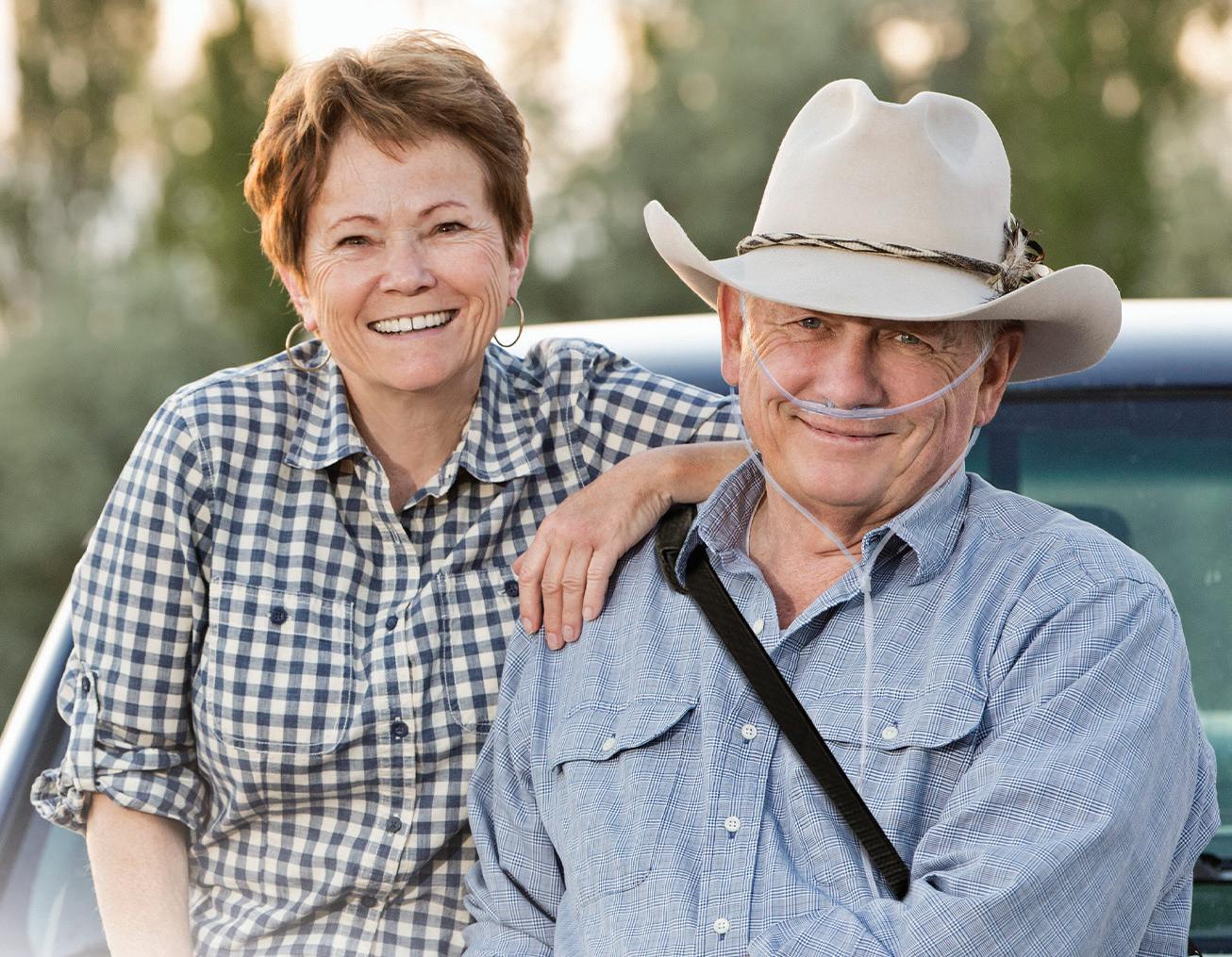
Introducing the Inogen One family of portable oxygen systems. With no need for bulky tanks, each concentrator is designed to keep you active via Inogen’s Intelligent Delivery Technology.® Hours of quiet and consistent oxygen flow on a long-lasting battery charge enabling freedom of movement, whether at home or on the road. Every Inogen One meets FAA requirements for travel ensuring the freedom to be you.

• No heavy oxygen tanks


• Ultra quiet operation
• Lightweight and easy to use
• Safe for car and air travel
• Full range of options and accessories

• FAA approved and clinically validated






When Marjorie and Steve were young, they didn’t think about owning a home, let alone retirement!
As they grew older they wanted the American dream, owning a home. That dream for Marjorie and Steve took hard work. With a good job, paying the bills, mortgage and of course keeping up with the kids, their house is more than just a home. It is the family they’ve built and the life they have lived. It was worth it all.
Now nearing retirement age, they are looking forward to enjoying what they earned. Marjorie and Steve couldn’t wait to sit back and relax and enjoy the fruits of their labor. But even with all their careful planning, unforeseen events and unexpected expenses diminished the assets they set aside for their retirement. The only realistic option they could see was to sell their retirement home in Sun Lakes. It felt like an impossible task.
Luckily, their son, knowing how
hard they worked and desired to stay in their home, suggested an alternative, a reverse mortgage. Marjorie and Steve’s credit card debt were not a part of their retirement plans, but Sun American Mortgage stepped in to help turn a bad situation into an opportunity for them to stay in their home. With 30 years of experience assisting Arizona seniors in similar situations Sun American Mortgage is a leader in the Reverse Mortgage industry. Instead of selling their precious home they worked so hard for in Sun Lakes, Marjorie and Steve were able to turn to the equity in their own home to pay off their credit card debt and get back on track to retire better.
With their reverse mortgage line of credit, they can take money in and out of their home without recourse. They can make payments on their reverse mortgage if they want to, but also feel safe knowing that in a pinch, no payment is required. They pay their property taxes, homeowners’ insurance and HOA

fees as always. Marjorie and Steve have options. They can simply pay the interest, make a full payment every other month, make two payments every month, or never make a payment again for as long as they live in the house. The reverse mortgage gave them the flexibility to live the future they dreamed of, even though their retirement plans didn’t go quite as planned, they can retire better.
Call Sun American Mortgage Company
(480)467-1000 or toll-free at 1(800) 469-7383. 4140 E. Baseline Rd., Ste. 206, Mesa, Arizona 85206

As spring blooms and children head outdoors for sports, activities and fun, seasonal allergies can cramp their enjoyment.
Here are some helpful hints for parents that can help ease runny noses and red, itchy eyes.
While there is no cure for allergies, there are steps you can take to ensure your child can enjoy the outdoors like other children, such as:
Our friends at Mayo Clinic share that while honey has been anecdotally reported to lessen allergy symptoms, the results haven’t been consistently duplicated in clinical studies.
Parker Turk: LO-0912436


• NMLS#267132

Rex Duffin: LO-0911707
• NMLS#169138
• Reduce allergens in the home: Vacuum weekly, dust and make sure to remove molds. Encourage everyone to remove their shoes when they enter the house so that they don’t track in pollen. Hang laundry to dry inside. With our rapid drying times, it’s tempting to put all your laundry out on the washing line, but when pollen abounds, hang those clothes and sheets inside where pollen won’t stick to them. Oh, and don’t let the dogs who’ve been playing outside up on your bed where they can deposit pollen.
• Have antihistamines or other allergy medications on hand to treat intermittent symptoms. Often some children need to take these medications every day. Once in the blood, these medications treat the common symptoms of allergies such as runny nose, itchy eyes and sneezing.
• Watch the pollen count and plan outdoor activities when pollen counts are low.
Over-the-counter antihistamines can help reduce common symptoms seen with allergies. They do this by protecting against the immune response that results from exposure to allergens, blocking the release of histamine and other substances released from allergy cells.
It is often tough to tell the di erence between allergies and colds, as symptoms can be very similar, but watery and itchy eyes are often seen with allergies. Colds often have an associated sore throat and can present with fever and body aches.
While kids should not be restricted from playing outdoors, taking preventive measures, such as giving allergy medications before going outside to play and watching the pollen count, can help reduce severe allergy symptoms.

Common spring allergens include tree pollens, grass pollen, mild spores and dust mites. In Tucson, we have lots of olive, mulberry, mesquite, sweet acacia and palo verde pollen, which can cause problems for some people. Grasses will become more of an issue toward the end of April and into the summer.

See a pediatrician when allergy symptoms are not well-controlled by over-thecounter medications or the reduction of allergy triggers. Those with asthma who are triggered by allergies should also see their pediatrician.
If you are in need of a pediatrician, call 520-324-4900 or go online to tmcone. com to get established.
The cost of everything is going up, use a Reverse Mortgage to supplement your tax-free cash flow and Retire Better!
There is a reason we have been helping people change their lives with Reverse Mortgages for over 30 years.This material is not provided by, nor was it approved by the Department of Housing & Urban Development (HUD) or by the Federal Housing Administration (FHA). An equal housing opportunity company, member of the Better Business Bureau & the National Reverse Mortgage Lenders Association • Mortgage Banker License #BK7548 • NMLS #160265

 BY FRED CICETTI
BY FRED CICETTI
I get a lot of gas, and someone told me it would help if I stopped chewing gum all the time (ex-smoker). That sounds like bunk to me. What do you think?

It’s not bunk. When you chew gum, you swallow more often and some of what you’re swallowing is air. In addition, arti cial sweeteners such as sorbitol that is found in some gums can give you gas.
But what exactly is gas?

Most people produce between a pint and a half-gallon of gas each day. Oxygen, carbon dioxide and nitrogen from swallowed air make up a large part of gas, or “ atus.” Fermenting foods in the colon produce hydrogen and methane as well as carbon dioxide and oxygen.


The unpleasant odor of some atus is the result of trace gases, such as hydrogen sul de, indole and skatole, which are produced when foods decompose in the colon.

We release gas upwardly by belching and downwardly by atulence. When we swallow air and don’t release it by belching, the air will work its way down and out the rectum. About half the gas passed from the rectum comes from swallowed air.
For the record, normal people pass gas about 10 times each day. Twenty times daily is still considered normal.
Some people su er from bloating caused by gas. Most who su er from bloating do not generate excessive gas, but they don’t move swallowed air fast enough. Sometimes, gas in these people moves in the wrong direction, returning to the stomach. The gas accumulates and produces discomfort. Some feel more discomfort than others because they don’t tolerate intestinal stretching well.
Another major cause of gas is partially digested food passing from the small intestines to the colon, where bacteria process the food further and produce gases.
Discomfort from gas is usually nothing to worry about. However, you should go


to a doctor if you have other symptoms such as abdominal pain, vomiting, diarrhea, constipation, weight loss, bleeding from the gastrointestinal tract, and sometimes heartburn.
Here are some ways to alleviate bloating:

• Eat multiple small meals during the day instead of two or three large ones.
• Chew food thoroughly and don’t gulp. Eat slowly.
• Don’t eat when you’re nervous or hurried.
• Don’t smoke; it makes you swallow more air.
• Avoid gassy foods. Some of the usual suspects are beans, onions, broccoli, Brussels sprouts, cauli ower, artichokes, asparagus, pears, apples, peaches, prunes, whole-wheat bread, bran, beer, soda and ice cream.
• Cut down on fatty foods. Fat slows digestion, giving food more time to ferment.
• If you take a ber supplement, try cutting back and then build up your intake gradually.


• Reduce consumption of dairy products. Or try using products that help digest milk sugar (lactose).
• Use over-the-counter aids. Add products such as Beano to high- ber foods to help reduce the amount of gas they produce. Try using simethicone, which helps break up the bubbles in gas. Charcoal tablets also may help.


The P3 Arizona team works closely with your primary care provider and your Medicare Advantage health plan. Our job is to connect you with the care you need - even after you leave the doctor’s office. Medication management, nursing support, access to community resources, health questionsP3 is your support system between doctor’s visits.
Get the care you DESERVE .
P3 Arizona supports seniors in getting the care they DESERVE . Learn more at (520) 462-8060 I P3Arizona.org
